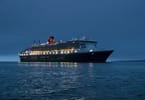Along with its elegant landscaping, this is a land of ideal summer temperatures, ranging between lows of about 60 degrees Fahrenheit (17 degrees Celsius) to highs of 78 degrees (24 degrees celsius). The combination of beautiful villages, ocean breezes, and fine dining makes it easy to understand why Cape Cod draws each year thousands of summer visitors eager to escape the big city heat and to enjoy the local charm
Despite its natural and man-made beauty, its delightful climate, and its world-famous cuisine, Cape Cod is first and foremost defined by its relationship to and with the sea. This is a land of quaint fishing communities and broad sandy beaches. Although the “Cape” has long been a playground for the world’s elites, its roots remain at sea, its cuisine is based on the riches of the sea, and its culture is oriented toward the sea.
Recommended when visiting Cape Cod
- Hyannis Harbor Hotel: Boutique and Charming
- STARS at Chatham Bars Inn: Oceanfront Dining
Cape Cod is almost a land apart. It is a land of marshes and sand dunes, filled with early American history and colonial architecture. Not far from here is Plymouth Rock, where the 17th century Pilgrims landed hoping to establish a home where they could worship freely and be far from Cromwell’s England. A bit further up the coast, and about a little over a hundred years later, these same “colonists” fought to free the land of British tyranny and unjust occupation. This willingness to speak and act forthrightly has molded Massachusetts’ personality as much as the sea has molded its geography and economy.
Geography has decreed that no one can live on Cape Cod and be far from the sea. This same geography also defines the heart of its tourism. Tourism, like the ocean, should act as the great equalizer for all: rich and poor, Christian and Jew, local and visitor. Perhaps that is a sub-theme of the Biblical book, מגילת יונה-the Book of Jonah. In Jonah, all the book’s characters are subject to the sea’s whims. Unlike humans, the sea had, and has, no prejudice. In Jonah, as in life along the ocean, one learns quickly that the sea never distinguishes between human beings.

cc1
Facing the oceans’ awesome majesty all humans are equal. The sea does not care about a person’s race or sexual orientation, nor about a person’s religion or nationality. The oceans treat all people alike, and all are subjected to their never-ending currents and whims. The sea knows no natural boundaries but rather presents a continuity of timelessness, a glimpse into what was and will be. The ocean then is a Hobbesian world where lack of collaboration results in death, and just as in the Book of Jonah, cooperation can result in survival. The oceans that surround Cape Cod then serve as more than the basis for its economy but also as eternal lessons on how we need to learn to treat each other
Peace Through Tourism would find an excellent reflection here.=
Soon this year’s journey to this land beyond the mainland will fade into the depths of history. Its lessons, however, will become constant reminders that to travel is to learn not only to appreciate those who are different from us but also to realize that all of us are stitches in G-D’s beautiful handiwork, that artistic piece of life we call humanity.
When I leave Hannis, I always think of Cape Cod.

WAT VUN DESEN ARTIKEL WEI HUELEN:
- Although the “Cape” has long been a playground for the world's elites, its roots remain at sea, its cuisine is based on the riches of the sea, and its culture is oriented toward the sea.
- The combination of beautiful villages, ocean breezes, and fine dining makes it easy to understand why Cape Cod draws each year thousands of summer visitors eager to escape the big city heat and to enjoy the local charm.
- Despite its natural and man-made beauty, its delightful climate, and its world-famous cuisine, Cape Cod is first and foremost defined by its relationship to and with the sea.




















![China's Hyperloop Train: A Abléck an d'Zukunft vum Transport 18 Travel Tourism News | Domestic & International Hyperloop Train China [Foto: Hyperloop Transportation Technologies]](https://eturbonews.com/cdn-cgi/image/width=145,height=100,fit=crop,quality=80,format=auto,onerror=redirect,metadata=none/wp-content/uploads/2024/02/180720163348-hyperlooptt-china-capsule.jpg)


